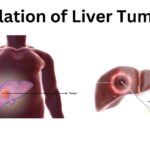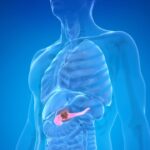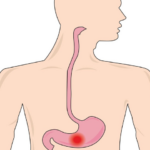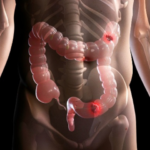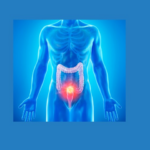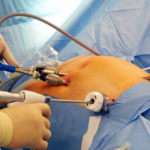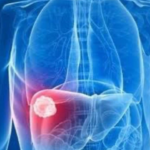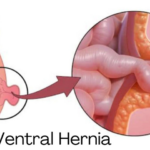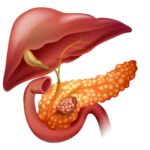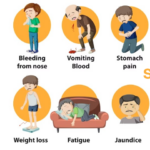Ulcerative colitis is a Chronic inflammatory Bowel Disease in which there is an abnormal reaction of your immune system which causes inflammation and ulcers in the inner lining of the large intestine.
SYMPTOMS
- Diarrhea
- Mucus or Blood in stool
- Cramping abdominal pain while passing stool (Tenesmus)
- Associated symptoms: Joint pains, Urinary symptoms, Skin nodules are present in 15% of patience’s
Whenever a patient experiences symptoms it is called a Flare-ups and when the patient is pain-free is called a Remission period
TREATMENT OPTIONS
The aim of the treatment is to
- Reducing symptoms
- Increasing the remission period
- Delaying flare-ups
- Medication
Many doctors try to treat Ulcerative colitis through Conservative Symptomatic Treatment with Medication
- Aminosalicylates – These medications help in treating mild to moderate inflammation
- Corticosteroids:- These medicines are for severe symptoms
- Immunosuppressants:- If the above medications do not work, then these medications are given to help delay the immune system response to decrease the damage
- Tofacitinib:- These medications help to treat moderate to severe pain.
For some patients, any one of the medications works. But sometimes single medication does not work on severe pain so more than one medicine can be prescribed to you
Taking more than one of the medications can increase the chances of your success rates. But on the same hand, it can also increase the likelihood of increasing side effects.
- Surgery
The most common type of surgery is Total Colectomy or J-Pouch Surgery. During this procedure both your colon and rectum will be removed and last part of the small intestine is used to create a pouch that is connected to the anal canal.
SIGNS THAT YOUR MEDICINE IS NOT WORKING!
You always have to keep track of your symptoms and how severe it is and also your remission period
After a while your current medication may stop giving you the same results as it used to.
If you feel your medication worsens your health, you need to speak to your doctor.
Some of the major signs are: –
- Blood in stool
If you see blood in stool, your condition isn’t improving.
Also, if there is a significant change in your bowel movements, like increased frequency or pain while passing stools, then you should see your doctor.
- Stomach pain, Vomiting, or Fevers
If you have severe stomach pains, continuous vomiting, and fever then these are the signs that your current treatment plan is failing
- Unexplained Weight Loss
Flare-up symptoms cause patients to lose appetite and to eat less.
This will likely lead to weight loss
WHAT TO DO NEXT IF YOUR MEDICATION IS NOT WORKING?
- If your flare-ups are increasing, then your medication can be adjusted
- Firstly, your doctor may suggest a short course of steroid treatment
- Steroids may not be the long-term solution.
- Change in your diet plan should also help.
- Avoid milk, coffee, fried foods, spices, high-fat foods, artificial food colors
- Increase more of high fiber food, beans, legumes, and vegetables.
- If none of the medication work or your body is not responding to these medications, surgery might be the best solution for you.
- Many patients are afraid or reluctant to have surgery but surgery can potentiality cure your disease.
With more than 20 years of expertise, Dr. Srikanth Gadiyaram, a well-known gastroenterologist in and around Bangalore, will help you cure your condition and support you every step of the way.
Visit Sahasrahospitals.com for more information. Feel free to contact us at 8880837000/9880105829.


